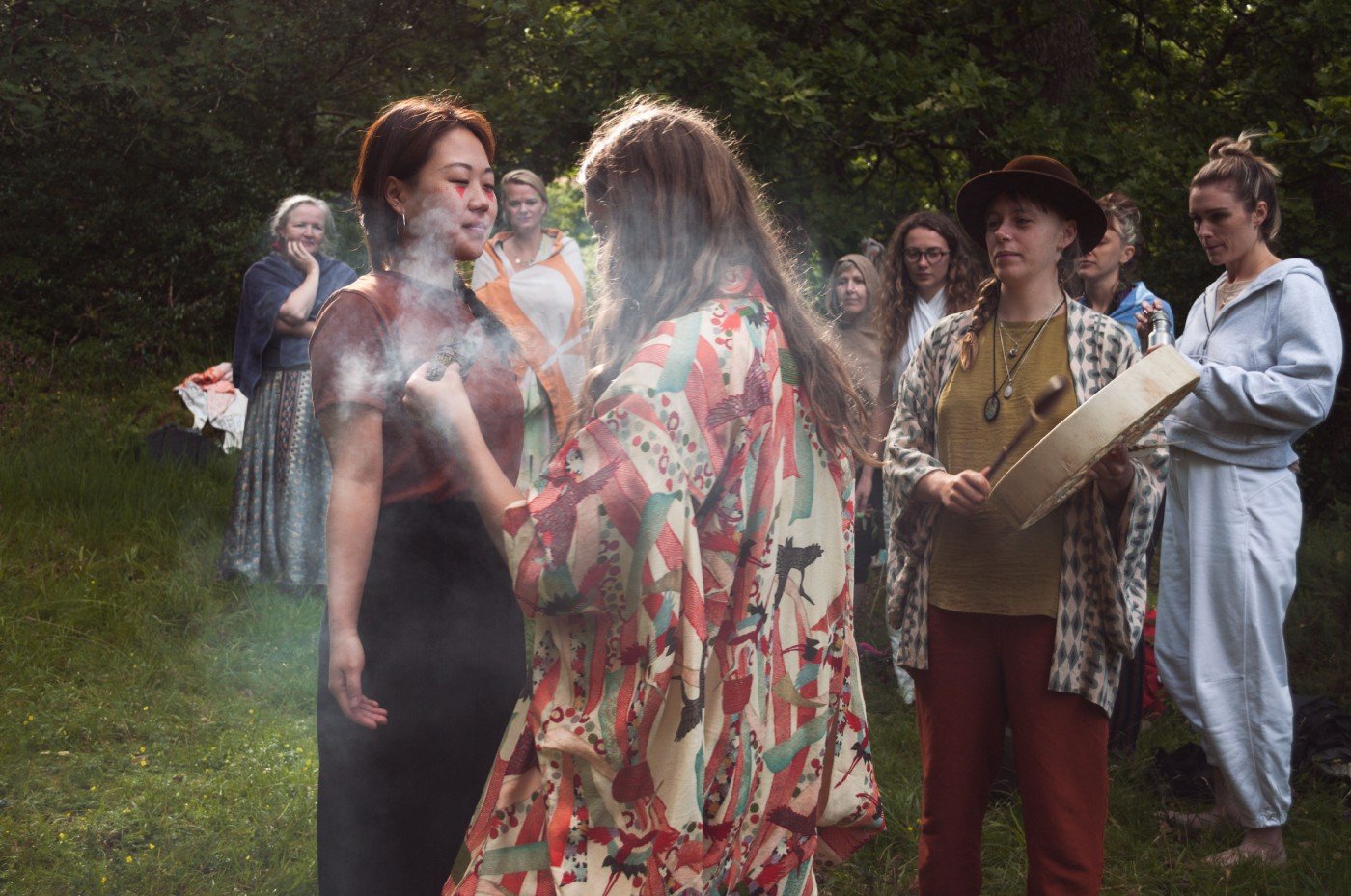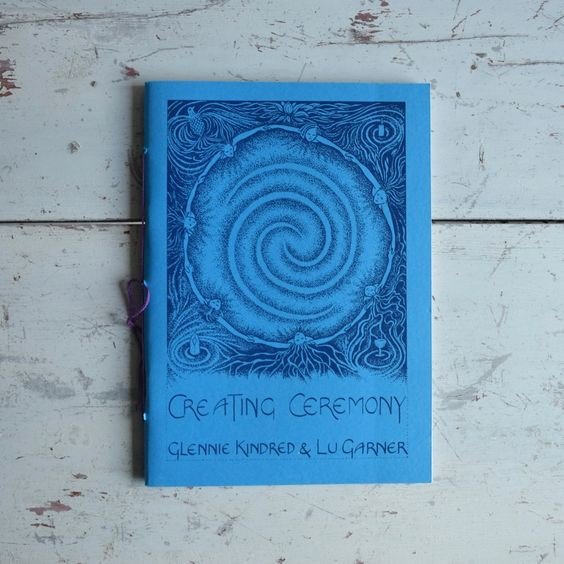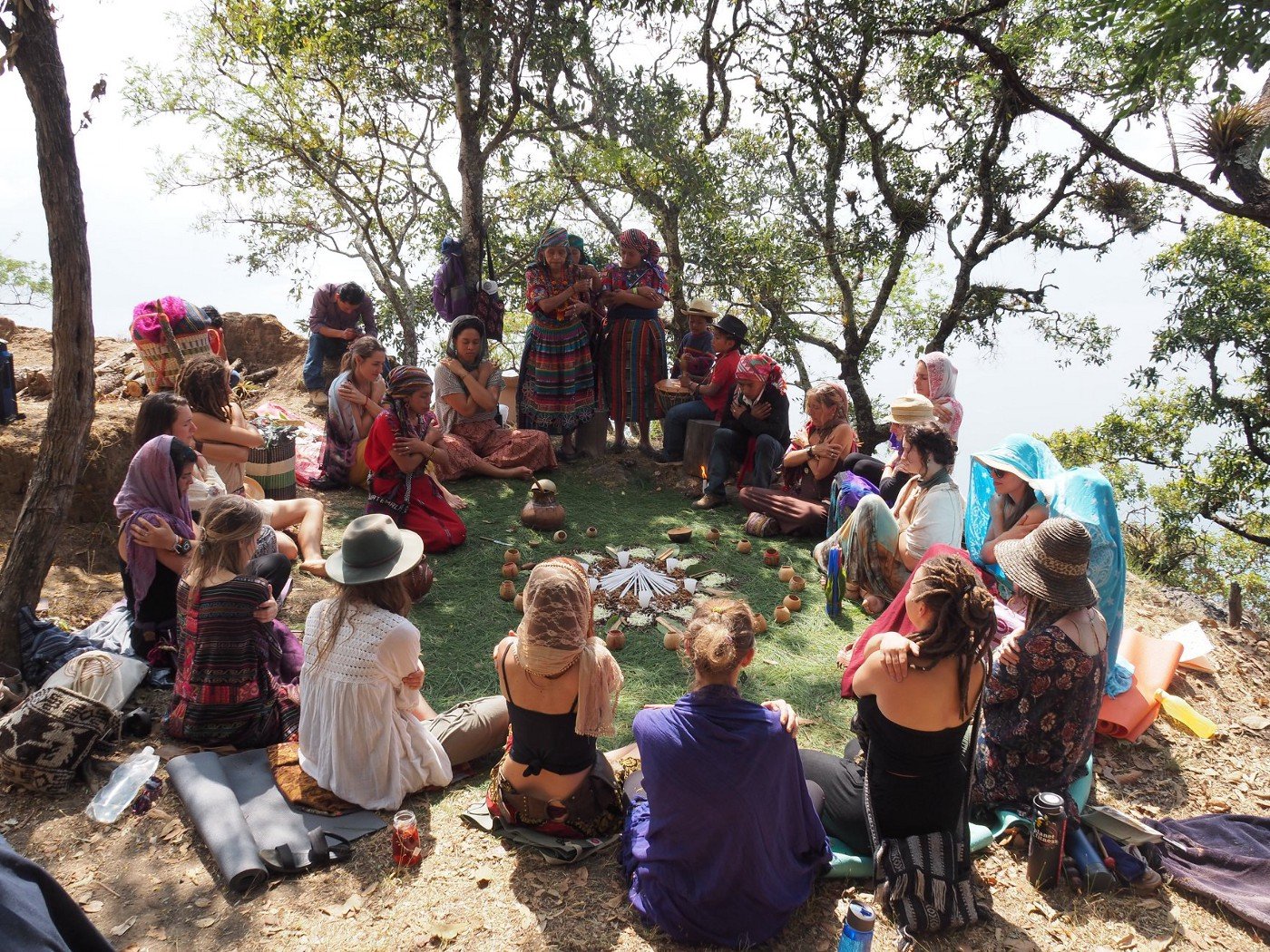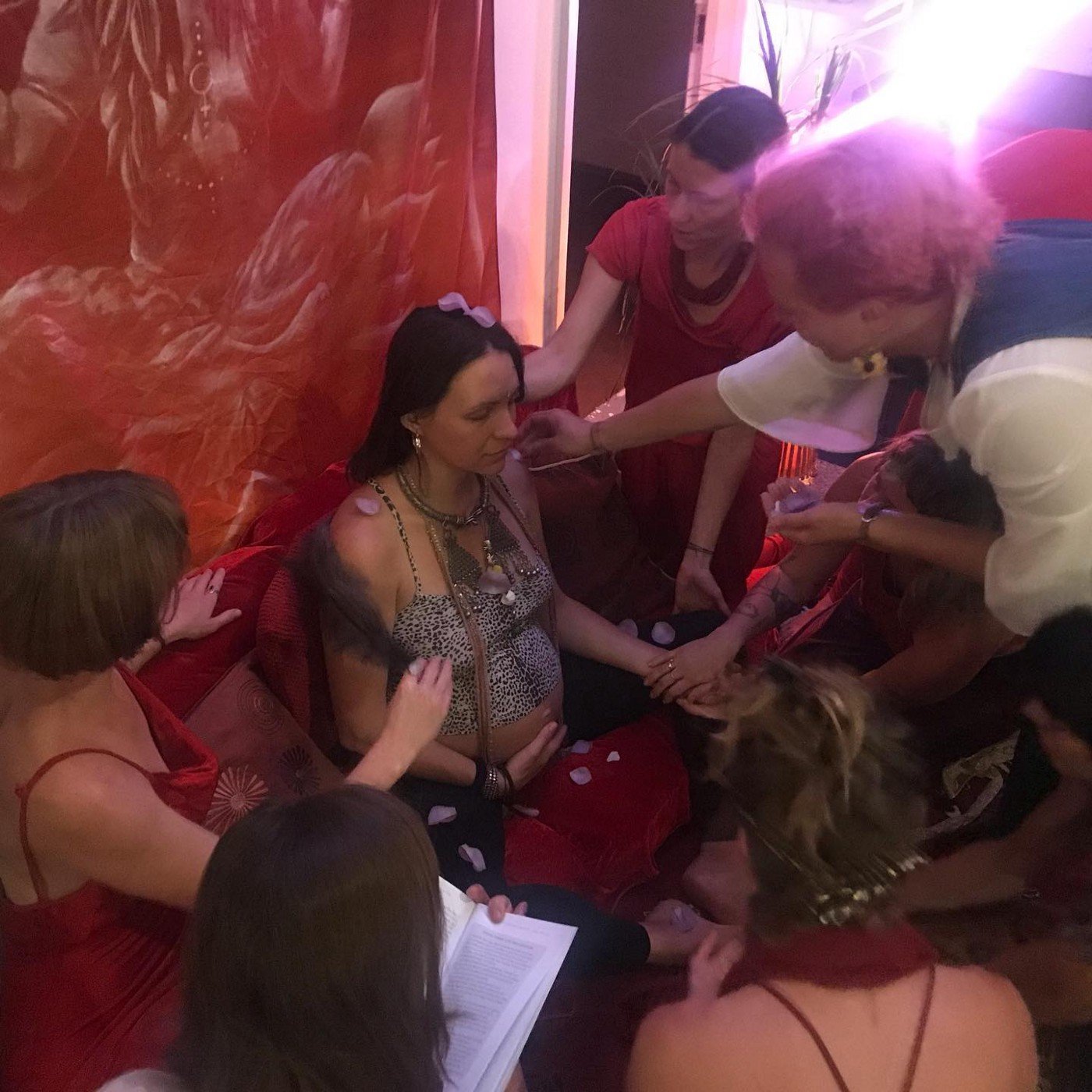Craving meaning and belonging in your life? Ritual could be the answer
Gaia Harvey-Jackson explores the role of ritual in meeting our needs for meaning and belonging, and how its absence in our culture is contributing to a mental health and ecological crisis. You can learn techniques for designing your own rituals at her next Psychedelic Society event, The Fundamentals of Ritual, on 12 January 2022.
Self Dedication Ritual — The Wild Woman’s Way — Dartmoor 2021
By Gaia Harvey-Jackson
Campaign to End Loneliness reports that “on average 45% of adults feel occasionally, sometimes or often lonely in England. This equates to twenty five million people.” The mental health charity, Mind reports “the amount of people with common mental health problems went up by 20% between 1993 to 2014.” Loneliness, depression and anxiety have reached epidemic status in the west. This basic need - to feel loved and accepted is not being met.
Our need for belonging is primal. Maslow puts it third in his Hierarchy of Needs - just after our survival necessities of food, shelter and security. And yet it’s in seemingly short supply for many these days.
How Ritual Found Me
My arrival into ritual was rather accidental. I was visiting the stone circles at Avebury on a cold and grey autumn day with a group of friends. We were there on a field trip researching for an upcoming theatre show that we were in the throws of devising. I’ve always been fascinated by history and the way people used to live. What did they think about? What was important to them? Who and how did they love? What did they do for fun?
Afterwards, in a hobbit-like gift shop, hiding away from the wind, I discovered a tiny blue book called ‘Creating Ceremony’ by Glennie Kindred. Inside, the entire book was hand written, yes, hand written, with beautiful intricate ink drawings.
I didn’t know it at the time, but that book would go on to define the course of my life and my career.
The book was short, you could read it in an afternoon, and something in me was set on fire. I devoured each page as I discovered the Celtic origins of the very land I stood on, excitedly learning the traditions and simple instructions for how to create your very own ceremony. This book was like gold dust.
After that we went home, warmed up by the fire, and sat excitedly exchanging ideas for how we were going to weave this new found wisdom into our performances. How had we never come across this before? Why didn’t we learn this in school?
I began to follow moon cycles, listen and notice with more intent as the seasons around me shifted, and started hosting new moon circles with 2 or three friends in my small apartment in Stoke Newington, London. It was far from the rituals of the Celts that I imagined, in their hundreds at Stone Henge, with a ceremony leader wearing some epic cloak, psychoactive sacraments, and an array of obscure instruments, but it was a start.
I didn’t know it at the time, but that book would go on to define the course of my life and my career.
The more I worked with the moon and created spaces for people to be intentional with their lives, the more I realised how much this was missing from our culture; a place to frequently reflect on how we were living, things that were holding us back, and dreams that we kept locked away in secret chambers of our hearts.
Over the years the rituals developed, more people came, and I began to focus specifically on women. Over and over I saw just how important creating opportunities for togetherness and reflection were. I saw people change, and their lives too. I saw friendships formed. Decisions inspired by the support of other women to leave the job, partner, place that was causing them suffering. I saw cripplingly timid women bobbing by the wall transform into wild wolves dancing with abandon. I heard unspeakable memories uttered aloud for the first time. I saw tears shed, and cried many myself. I heard laughter, felt the warm hands of other women, and gazed into hundreds of eyes. The offerings were far beyond myself, and the transformational quality was an experience only possible by the gathering and witnessing of many bodies.
This was something worthwhile.
So What is a Ritual Anyway?
A ritual declares an intention to honour something in our lives.
A ritual lifts someone out of their everyday experience, and brings them into a world that exists in a liminal space. It has a clearly marked beginning and end, with some kind of peak experience in the middle that catalyses a shift in the person.
The tools of ritual such as drumming, dancing or guided visualisation are often used to bring someone into an altered state of consciousness that is ripe territory for transformation.
Rituals are powerful because they work in the symbolic realm, and speak to our subconscious in a way that rational thought cannot. Through embodiment and symbolism we are able to bring about a more real sense of change that helps people process and integrate the intended outcome of the ritual.
Traditional Cacao Ceremony — Midwifing the Veils — Lago Atitlan 2020
What is the Purpose of Ritual?
Ritual has been used by humans for thousands of years as a way to create meaning out of the things that happen in our lives. We are story-loving creatures with a need to make meaning. This is how we make sense of the world and our place in it.
Ritual is a way of keeping people together. Shared traditions offer a shared understanding of the world, and a shared identity, which meets our basic human need for belonging.
Historically (and still in many indigenous cultures) ritual has been used to acknowledge and honour the relationship we have with the earth, and how much we rely on its resources for our survival.
Many old rituals are based on the observations of the changes in the sky, the moon, the seasons, and the life cycles of humans.
Most of our seasonal holidays stem from our transition from hunter gatherers to agricultural settlers and revolve around the harvest; making offerings to the skies to pray for a good harvest.
A ritual is to mark a transition of some kind. And transitions are almost always inherently on some level vulnerable, scary, unknown, un-chartered territory.
Rituals for significant life transitions still exist in our culture today that mark births, marriages, funerals and so forth, though many lack the depth to truly honours the moment and the significance of passing through a threshold of life. That depth comes from real reflection, intention, sincerity and commitment.
Many cultures still practice Rites of Passage for young people crossing the threshold into adulthood, such as the Aboriginal Rites of Passage in Australia, during which the youngster leaves their community, wanders the land, endures hardships, discovers insights, and is finally welcomed and celebrated on their return.
The Role of the Witness
While solo ceremonies are indeed powerful, there is a magnifying quality that adds weightiness to an intention when it is witnessed in a group.
Belonging is a basic human need, and belonging occurs when we feel seen, accepted, loved and supported. This is what the role of the witness offers in a ceremonial context.
A ritual is to mark a transition of some kind. And transitions are almost always inherently on some level vulnerable, scary, unknown, un-chartered territory.
Whether in the context of a major life transition, a psychedelic ceremony, or a ceremony to mark the changing of the season, we are being asked to go beyond our current version of self, and to step forth into the unknown. It is to lay our hearts bare and declare what we most truly desire. It is to reveal a hidden secret, grief or shame that is ready to surface for healing.
Entering ritual space is to say, “I have agency over my own life. I am choosing to consciously take this next step, with awareness of my past, my patterns, and with intention to head towards a future that I dare to dream for myself.”
Whatever our intention is, being witnessed, or being seen, is to make something real. Being held in that loving presence is to receive the blessing of the group, and it is this support that we feel at our backs when we return to our everyday state and begin the steady task of integrating the new self.
Without Ritual We Lose Meaning and Belonging
Ritual, and Rites of Passage in our western culture are sorely missing, and the impact of that is felt globally. We are in dire need of eldership and stewardship to help people to step into their adult years with a sense of responsibility for their communities and planet.
We are starved of role models and a community that can truly support and encourage us to become our most vibrant selves, to discover what our passions are, and how we can fit into and serve this world.
I have been privileged enough to be part of, and also to hold some rites of passage for women. Entering a marriage (Bridal Blessing Way), entering motherhood, (Baby Blessing Way), as well as marking the termination of a pregnancy, which is a significant trauma for any woman who has undergone this procedure.
Baby Blessing Way — London 2019
Entering ritual space is to say I have agency over my own life. I am choosing to consciously take this next step, with awareness of my past, my patterns, and with intention to head towards a future that I dare to dream for myself.
What I have learned from these experiences is the importance of bringing reverence to these moments which mark a shift in the direction of our lives and for it to feel real. To be witnessed, supported and to be shown love by the people who matter most to us, is what is needed to fully make that transition.
The indigenous roots of the UK and Europe were mostly eradicated some 2000 years ago as the last of the Ancient Celts perished under the rule of the Roman Empire, and along with them, many of our ritual practices.
Bridal Blessing Way — London 2019
Ritual is a tool to make meaning of our lives, and to mark the significance of key moments. Ritual is also a tool to stay in connection with the land and the passing of time. Without ritual we are are becoming ever more disconnected from a sense of meaning and belonging, and further more, we are becoming estranged from the land and our inextricable connection with it.
The implications of this on a personal level are; higher rates of loneliness, suicide, depression and anxiety than parts of the world that still participate in ritual regularly as a normal part of life.
On a collective level our disconnection from nature is leading us towards a climate emergency where the continuation of our ecosystems and even our own survival is coming into question.
Standing on the steps of Trafalgar Square for the Extinction Rebellion Protest Closing Ceremony in 2019 I was hit with the power of the collective, and the power of song and prayer to carry a message. It was a beautiful moment where ritual in its simplest form was used to bring people into their hearts.
XR Closing Ceremony — Trafalgar Square 2019
Protests can often be filled with the an energy that feels hard and tough, and here at dusk, with the helicopters flying overhead, squads of police at the perimeter and hundreds of people gathered, we reminded people of why we were really here. A love of our planet, and the desire for our children, and future generations to enjoy the beauty and bounty of the world.
It feels vital that we do what we can to restore and revive ritual in the west in order to restore the health of our people and planet.
We need to remember that the planet does not belong to us, but instead, we belong on this planet.
Though our lineage is broken, we can piece back together the scraps of history of ritual and ceremony within Northern Europe. Celtic traditions, although mostly wiped out are still alive today. With a bit of digging and imagination we can find inspiration in these land based practices, and reclaim ritual for ourselves. While we can look to other cultures for inspiration, particularly in relation to nature and elders, we must find our own roots in these lands if we are to really feel that sense of belonging that we are all deeply longing for.
We must awaken our own myths and legends and speak their names to tell the stories to remember our past and more fully understand who we are and where we come from.
Gaia regularly leads courses and events for the Psychedelic Society around ritual. You can dive deep into this work through her four-month women’s facilitation and leadership training or attend this upcoming evening talk on The Fundamentals of Ritual.






